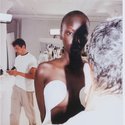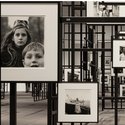By
David Schonauer Friday June 6, 2025
In 1969, George E. Smith, a Bell Labs researcher, joined a colleague, Willard S. Boyle, at a blackboard to sketch out an idea that would be become the foundation for digital photography. Their
initial vision was a proposed video phone, but the concept became the proving ground for what they called the CCD, or charge-coupled device, which transformed light into electronic signals. Their
breakthrough, … Read the full Story >>
AnOther Thursday June 5, 2025
This season brings some standout photo publications, notes AnOther, from “a 700-page chronicle of Pieter Mulier’s first years at Alaïa to Corinne Day’s behind-the-scenes shots on the set of The Virgin Suicides.” Also included among the picks: Ren Hang at Work, by Austrian photographer Peter Coeln, showcases an intimate, behind-the-scenes look at the late photographer during a 2015 photoshoot near Vienna; while Talking About LA features photographer Désirée van Hoek’s images of a fragmented urban landscape. There’s also Paolo Roversi’s new book. Read the full Story >>
The Guardian Thursday June 5, 2025
“Diane Arbus: Constellations,” opening today at the Park Avenue Armory in Manhattan and running through Aug. 17, aims to present the artist as no one has seen her before, notes The Guardian. And it does so in a big way, with a full set of 454 master prints from Arbus’s only authorized printmaker, Neil Selkirk. The exhibition grew out of the Luma Foundation’s blockbuster 2011 acquisition of Arbus prints, many of them rarely viewed. “The question was how to present this group of images without doing a classic retrospective,” says curator Matthieu Humery.
Read the full Story >>
The Washington Post Thursday June 5, 2025
In 1969, George E. Smith, a Bell Labs researcher, joined a colleague, Willard S. Boyle, at a blackboard to sketch out an idea that would be become the foundation for digital photography. Their initial vision was a proposed video phone, but the concept became the proving ground for what they called the CCD, or charge-coupled device, which transformed light into electronic signals. Their breakthrough was honored 40 years later with a Nobel Prize in physics. Smith died May 28 at his home in Waretown, New Jersey. He was 95, notes The Washington Post.
Read the full Story >>




